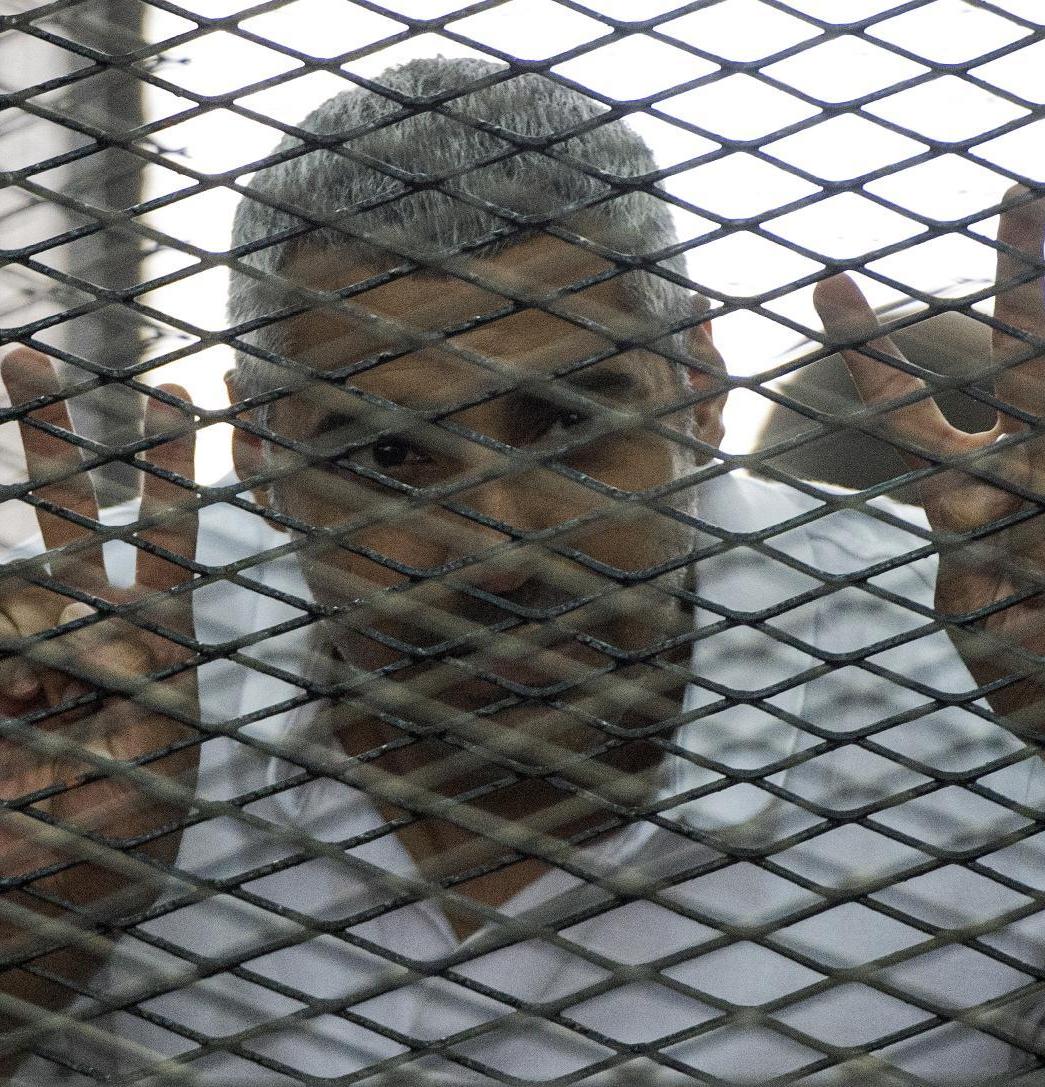Al-Jazeera journalists go free in Egypt, but press freedom is at risk worldwide
Two remaining Al-Jazeera journalists jailed in Egypt on charges of aiding a “terrorist organization” were freed on bail on Thursday after more than 400 days, but the court said the case against them was still pending. The case triggered an international outcry and has been cited by government critics as evidence that Cairo is rescinding freedoms gained after a 2011 uprising toppled autocrat Hosni Mubarak, an allegation the government denies. A third Al-Jazeera reporter sentenced with them, Australian Peter Greste, was freed on Feb. 1 and deported. The three were sentenced to between 7 and 10 years on charges including spreading lies to help a terrorist organization, a reference to the Muslim Brotherhood.
This is a huge step forward. Not time to declare it over, but at least you get to go home!
Peter Greste via Twitter after his colleagues’ release was announced
The announcement comes as the watchdog group Reporters Without Borders (RSF) declared in its annual evaluation that media freedom suffered a “drastic decline” worldwide last year. Government censorship was partly to blame for the downturn, but RSF also pointed to the growing threat posed by nonstate actors such as Boko Haram and the so-called Islamic State, which it said “follow no laws and disregard basic rights in pursuit of their own ends.” Widespread turmoil in the Middle East solidified its reputation as the most dangerous place for journalists. Egypt ranks No. 158 on the list, just 21 spots from the bottom, but one spot higher than last year.
Motives may vary, but their modus operandi is the same — the use of fear and reprisals to silence journalists and bloggers who dare to investigate them or refuse to act as their mouthpieces.
a Reporters Without Borders statement

World FreeAJstaff